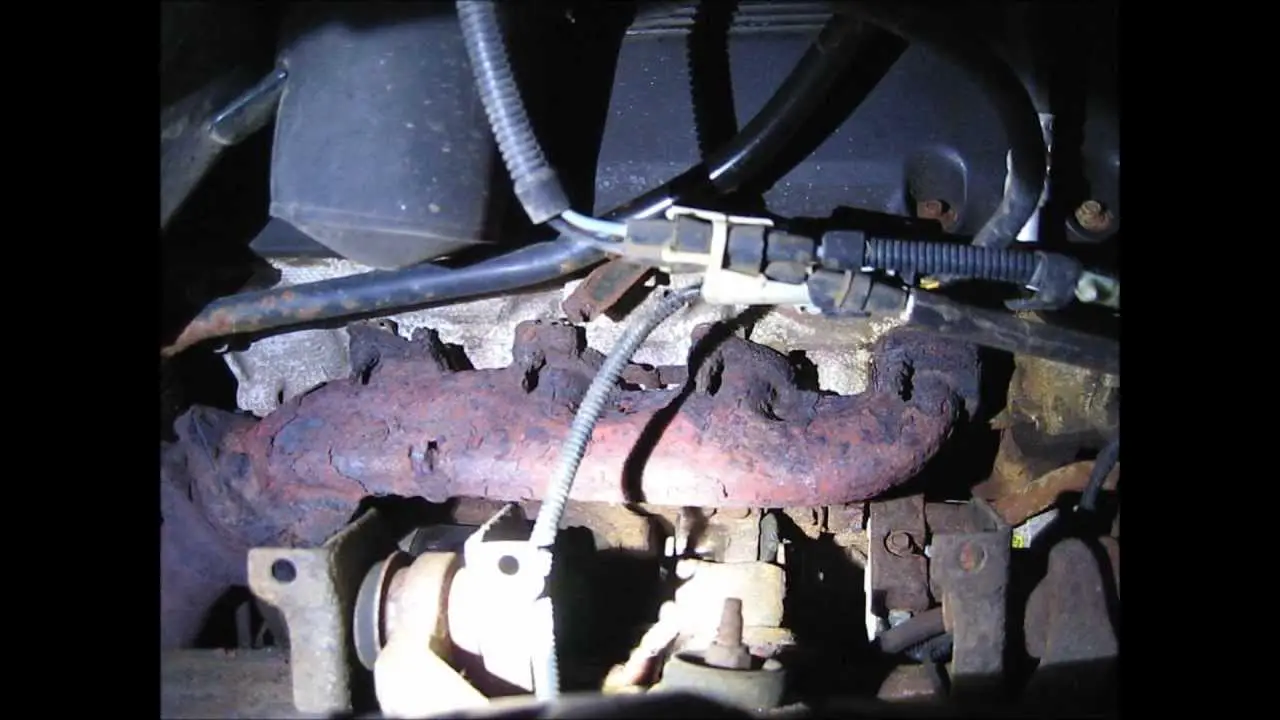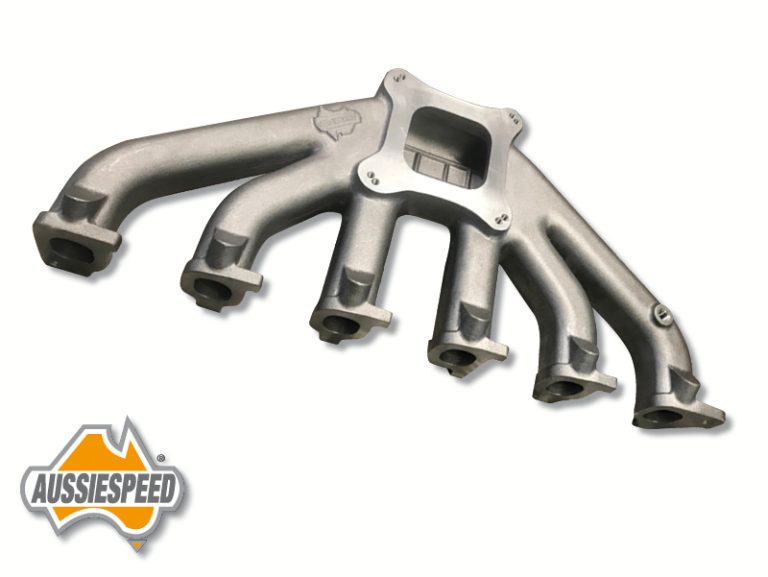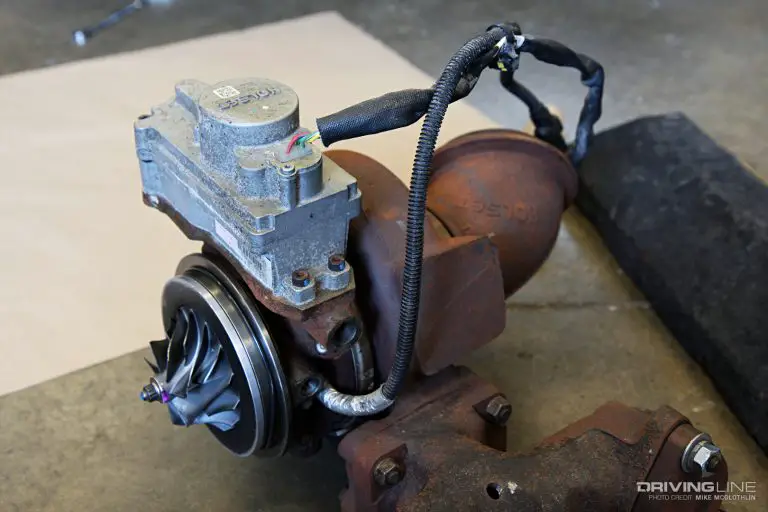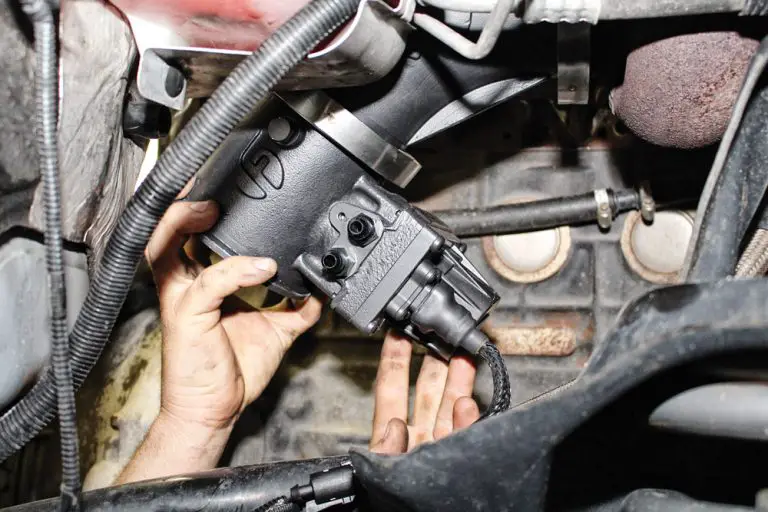1997 Ford F150 Exhaust Manifold Leak
A leak in the exhaust manifold can cause a decrease in engine performance and an increase in fuel consumption. The leak can also cause exhaust gases to enter the cabin of the vehicle, which can be dangerous.
If you’re driving a 1997 Ford F150 and notice an exhaust manifold leak, don’t panic. This is a fairly common issue with this model truck and can usually be fixed fairly easily.
The first thing you’ll want to do is check your exhaust manifold bolts to see if any of them are loose.
If they are, simply tighten them up and see if that fixes the leak. If not, then you may need to replace one or more of the bolts.
Another potential cause of an exhaust manifold leak is a cracked gasket.
If this is the case, you’ll need to replace the gasket in order to fix the leak. Fortunately, this is a relatively easy repair that can be done at home with just a few tools.
If you’re still having trouble finding and fixing the source of your exhaust manifold leak, then it’s time to take it to a mechanic or dealership for further diagnosis and repairs.
How to Replace Exhaust Manifold 1997-2003 Ford F-150
F150 Exhaust Manifold Leak Symptoms
If you have an exhaust manifold leak, it’s important to be aware of the symptoms so you can get it fixed as soon as possible. Here are some common symptoms of an exhaust manifold leak:
1. Your engine is running louder than usual.
This is because the exhaust gases are escaping from the leak and causing a loud noise.
2. You may notice a decrease in fuel efficiency. This is because the engine is not able to work as efficiently when there is an exhaust leak.
3. You may also see an increase in engine temperature. This happens because the escaped gases are hot and can cause the engine to overheat.
4. Finally, you may notice that your check engine light is on.
This is because the exhaust leak can trigger a diagnostic trouble code and turn on the check engine light.
Ford F150 Exhaust Manifold Leak Sound
If you’re hearing a ticking noise coming from your engine, it could be an exhaust manifold leak. The exhaust manifold is the part of your engine that collects exhaust gases from the cylinders and funnels them into the catalytic converter and muffler. A leak in this component can cause those gases to escape and make a ticking sound.
Exhaust manifold leaks are often caused by cracks or holes in the manifold itself. These can be caused by corrosion, thermal stress (from hot and cold cycles), or physical damage. In some cases, bolts that secure the manifold to the cylinder head can loosen and cause a leak.
If you think you have an exhaust manifold leak, it’s important to get it fixed as soon as possible. Not only will it make your car run less efficiently, but it can also be dangerous if fumes enter the cabin of your vehicle. If you’re not sure what’s causing the noise in your engine, take it to a mechanic for diagnosis.
Ford F150 Exhaust Manifold Recall
In February of this year, Ford issued a recall for more than 1.2 million F-150 trucks in the United States over concerns about the truck’s exhaust manifold. The recall affects certain model years of the truck from 2004 to 2006.
The problem is that on affected trucks, the exhaust manifold bolts can loosen and eventually break over time.
If this happens, it can cause an engine fire. So far, there have been 17 reports of engine fires related to this issue, but no injuries have been reported.
If you own an affected truck, Ford will notify you and schedule a free repair at your local dealership.
The fix is relatively simple – dealers will replace the existing bolts with longer ones that are less likely to loosen or break over time.
If you’re not sure if your truck is included in the recall, you can check online at www.fordexhaustrecall.com or call Ford customer service at 1-866-436-7332.
1997 Ford F150 4.6 Exhaust Manifold
The 4.6 liter Ford F150 came out in 1997, and was a big improvement over the previous 5.0 liter engine. The 4.6 has more torque and horsepower, and gets better fuel economy. One problem that can occur with this engine is cracking of the exhaust manifold.
This can happen due to corrosion from water or other fluids, or from thermal stress caused by the high temperatures of the exhaust gases. If your truck has developed a crack in the exhaust manifold, it will need to be repaired or replaced. You may be able to do this yourself if you have some welding experience, but it’s best to leave it to a professional if you’re not sure what you’re doing.
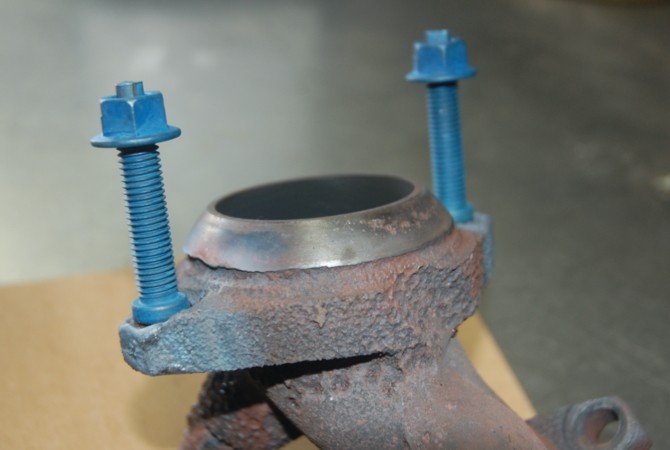
Credit: www.felpro.com
How Much Does It Cost to Fix an Exhaust Manifold Leak on a Ford F-150?
If you’re noticing a drop in fuel efficiency or an uptick in engine noise, it might be time to check your exhaust manifold for leaks. An exhaust manifold leak on a Ford F-150 will typically cost between $200 and $400 to fix, depending on the severity of the leak and whether or not any other parts need to be replaced.
The exhaust manifold is responsible for collecting exhaust gases from the cylinders and directing them towards the catalytic converter.
Over time, the manifold can develop cracks which can lead to leaks. These leaks can cause a decrease in fuel efficiency as well as increased engine noise.
If you think you might have an exhaust manifold leak, the best thing to do is take your truck to a qualified mechanic for diagnosis.
They’ll be able to tell you for sure if there’s a problem and give you an estimate for repairs. In most cases, fixing an exhaust manifold leak will require replacing one or more gaskets as well as any damaged bolts or studs. The good news is that this isn’t a particularly difficult repair job, so labor costs shouldn’t be too high.
All told, you can expect to pay between $200 and $400 to fix an exhaust manifold leak on your Ford F-150. This may seem like a lot of money, but it’s worth it to keep your truck running smoothly and efficiently.
How Serious is an Exhaust Manifold Leak?
An exhaust manifold leak is a serious issue that needs to be addressed as soon as possible. If left unaddressed, an exhaust manifold leak can lead to engine damage and decreased performance. In extreme cases, an exhaust manifold leak can cause the engine to overheat and catch fire.
If you suspect that you have an exhaust manifold leak, it is important to take your vehicle to a qualified mechanic or dealership for diagnosis and repair. Do not attempt to repair the leak yourself, as this can be dangerous and may make the problem worse.
Can You Still Drive With an Exhaust Manifold Leak?
Yes, you can still drive your car with an exhaust manifold leak. However, it is not advisable to do so because it can be dangerous. Exhaust fumes are toxic and can cause serious health problems if inhaled for too long.
Additionally, the leak will eventually get worse and could cause your engine to overheat.
What are the Signs of an Exhaust Manifold Leak?
If you think you may have an exhaust manifold leak, there are several signs to look for. First, check your engine oil level and quality. If the oil is low or dirty, it may be leaking into the combustion chamber and burning off.
Second, listen for unusual noises coming from the engine compartment. A ticking sound could indicate a small crack in the manifold that’s allowing hot gases to escape. Finally, look for visible leaks around the manifold itself.
If you see any cracks or holes, or if the gasket between the manifold and cylinder head is damaged, you’ll need to replace the manifold.
Conclusion
The 1997 Ford F150 has an exhaust manifold leak. This can be a serious problem because it can cause the engine to overheat. The best way to fix this problem is to have a professional mechanic take a look at it.

